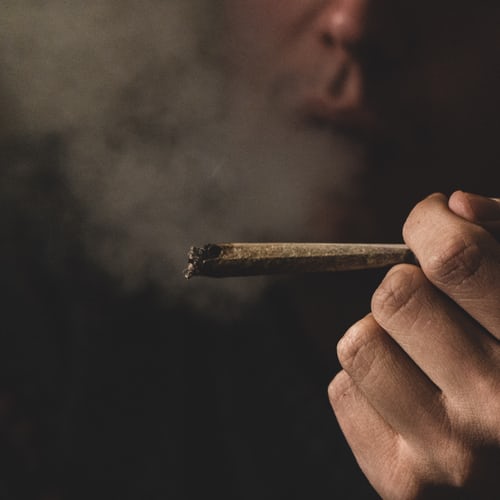U.S, February 5, 2020 (MARIJUANABUSINESS) With capital constraints a growing factor in the marijuana industry, U.S. cannabis companies facing financial pressure are increasingly eyeing Canadian bankruptcy protection as a possible solution to their problems.
“It’s a growing trend,” said Zachary Kobrin, special counsel of government affairs at Fort Lauderdale, Florida-based Akerman. “We started seeing the tea leaves a few months ago and are looking into it.”
Troubled U.S. cannabis companies have tried the bankruptcy route at home, but given the federal illegality of marijuana, that has not proved to be a successful path.
Some U.S. firms now are looking north, where Canadian cannabis companies are allowed to seek such legal shelter from creditors.
But it won’t be easy to look for bankruptcy protection in Canada, as Jeff Schultz, partner at New York-based investment group Navy Capital, explained.
“Cross-border insolvency cases are highly complex,” Schultz said. “Layer on cannabis, and you have a uniquely challenging process for everyone.”
Canadian bankruptcy might provide an option for U.S. businesses that have Canadian operations, or they might go down such a route if their stocks are listed on an exchange such as the Canadian Securities Exchange.
But multiple caveats exist.
Indeed, lawyers say the listing qualification is unlikely to be enough purely on its own.
“A Canadian listing is not sufficient in itself,” said Jeffrey Simpson, a partner at the Banking, Financing and Insolvency group of Toronto-based Torkin Manes. “The debtor company typically needs to be a Canadian-incorporated entity or have the majority of its business operations in Canada.”
It’s all in the detail
Much could depend on what Schultz of Navy Capital calls “the ugly corporate details.” For example:
- Where were subsidiaries formed?
- Which ones are operating entities?
- Which ones are actually insolvent?
Purely as an illustration of how U.S. multistate cannabis operators can be set up, Schultz pointed to Chicago-based Cresco Labs – which, in reality, is relatively well-funded and not exactly a candidate for bankruptcy. Because of its CSE listing, Cresco set up a company structure in British Columbia.
However, that entity owns a corporation based in Cresco’s home state of Illinois, which in turn owns various subsidiaries via other entities.
By contrast, Toronto-based DionyMed, which is currently going through bankruptcy protection hearings in Vancouver, is listed on the CSE and is an incorporated company in British Columbia.
While DionyMed owns a number of U.S. subsidiary entities that constitute the bulk of its business, the incorporation in British Columbia is crucial.
“That is the most important aspect of the jurisdiction question in this case,” said Torkin Manes’ Simpson, who is representing a creditor, Flow Capital, in the case. “That fact gives the Canadian court jurisdiction.”
All that said, issues of reciprocity still exist. If a cannabis company has operations in the United States, the hurdle of overcoming U.S. bankruptcy courts would remain – even with a successful Canadian bankruptcy case.
There is the concept of “recognition” and, lawyers explained, Canadian judges would need to have confidence they have a strong enough case to be accepted by a U.S. bankruptcy judge.
There must not be any of what Aubrey Kauffman, a partner and cross-border bankruptcy specialist at Toronto-based law firm Fasken, described as “gamesmanship” or “artificial protection” where U.S. companies essentially are doing little more than setting up a Canadian bank account, for example.
Canadian judges would likely steer clear unless there is a truly compelling case, agreed Adam Slavens, a partner at Toronto-based law firm Torys.
“That would be seen as a manufactured Canadian nexus to shoehorn them into an insolvency proceeding,” Slavens said. “Judges wouldn’t really want such a target on their back.”
Creditors could turn aggressive
In a Canadian hearing, additional problems could also arise for U.S. companies not covered by any of the protections they might expect in a bankruptcy case in the United States.
In typical U.S. bankruptcy hearings, companies are protected from creditors during the court case, but that would not be valid for U.S. creditors during a Canadian hearing – potentially allowing those creditors to turn unfriendly on American firms.
While the possible path to Canadian bankruptcy protection therefore seems narrow, U.S. cannabis companies could potentially explore it even without some or all of the largely accepted criteria, said Simpson at Torkin Manes.
“Even if you don’t have any of those things, the court still, in theory, could find that it has jurisdiction in the right case, on the right facts,” he said.
The DionyMed case was still an “ad hoc proceeding” even though it had a seemingly stronger case than most. “It is uncharted territory,” Simpson said.
Political changes ahead?
Then there is the uncertainty surrounding a potential change of the federal administration in the U.S. later this year.
If the administration changes, it is possible that U.S. trustees – Department of Justice bankruptcy lawyers – could prove less willing to involve themselves in eventual U.S. bankruptcy hearings, especially with more pro-business judges, said Kobrin of Akerman.
“Politics is the real wild card,” Kobrin said. “If you can find that jurisdictional sweet spot (with the judges and trustees), there could be more leeway.”







